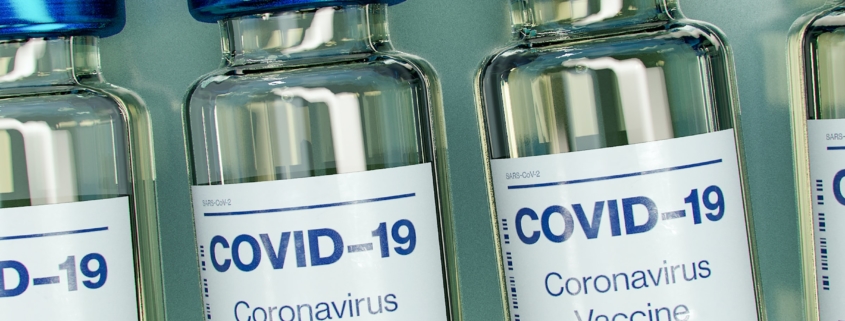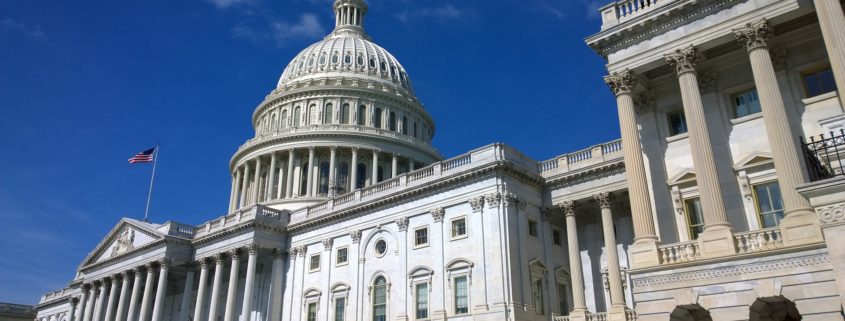Click here for the press release
Center Calls on Lawmakers to Responsibly Consider AHCA Implications for RI; Desist with Fear-Mongering
FOR IMMEDIATE RELEASE: May 9, 2017
AHCA: Center Calls on RI Lawmakers to be Responsibly Proactive vs. Reactive Fear-Mongering
Recommends Public Process to Consider State Options
Providence, RI – Healthcare is among the most personal and important issues any family may ever deal with. Similarly, evaluating the realities of the shifting federal and state health care landscapes is among the most important tasks our state lawmakers may ever consider.
Instead of irresponsibly spreading false fears about the proposed federal health care reforms, the Rhode Island Center for Freedom & Prosperity today calls on lawmakers to work together to establish a responsible process to evaluate – in between legislative sessions – the many options states may soon be empowered to make if some version of the American Health Care Act (AHCA) were to become law this summer.
“It is a gross public disservice for Rhode Island’s Governor and Congressional delegation to falsely claim that thousands of people will lose health coverage or may die in the streets due the new law,” warns Mike Stenhouse, CEO for the Center. “We need their leadership right now to ensure that serious discussions about serious issues will be systematically conducted by serious people. Enough of the shameful and unproductive partisan talking-points.”
In a policy brief it also issued today, the Center poses a number of question and vital decisions that Ocean State policymakers may soon be empowered to make to serve the best interests of the people of Rhode Island.
-What do we do with HealthSource RI?
-How should RI evolve its Medicaid program under a per capita cap? Should it apply a Medicaid block-grant waiver?
-Should RI opt for a federal waiver to set up its own high-risk pool?
-Should RI reduce mandated coverages and allow cross-state sales?
-Should work requirements, cost-sharing arrangements, or time limits be placed on Medicaid benefits?
“Assuming that some version of the AHCA will not become law until after our legislative session is closed for the year, it is important that Rhode Island political leaders put in place some kind of process so that before the 2018 session we can properly, fully, and publicly consider the new law and the many decisions we will have to make as a state,” concluded Stenhouse, who has participated in numerous national conference calls with some of the U.S. Congressman who actually wrote the House AHCA bill and with local health care experts such as Gary Alexander, former health and humans services director for the states of Rhode Island and Pennsylvania.
The policy brief also discusses myths about the AHCA, as well as some of its intended goals and features dealing with Medicaid and pre-existing conditions.
show less
OVERVIEW
If the final federal healthcare law that eventually emerges from Washington, D.C. is similar to the version that passed the House of Representatives in early May of 2017, Rhode Island lawmakers will find themselves in the middle of largely reshaped federal and state healthcare landscape. Soon they may be faced with multiple important questions; and they will also realize that they will be newly empowered to make state-specific decisions for the people of Rhode Island.
- What do we do with HealthSourceRI?
- Should RI opt for a Medicaid “block grant”?
- How should RI evolve its Medicaid program under a per capita cap?
- Should RI opt for a waiver to set up its own high-risk pool?
- Should RI reduce mandated-coverage and allow cross-state sales?
- Should work-requirements, cost-sharing arrangements, or time-limits be placed on Medicaid benefits for some populations?
Should Rhode Island have a transparent healthcare insurance market that relies on the free-enterprise system and that enables providers and patients to craft and choose their own plans, driving down the price for consumers? Or should we continue with a government-controlled market that mandates what individuals, employers and insurers must provide and buy, with continually increasing premiums and deductibles?
Are Rhode Island lawmakers and bureaucrats prepared to honestly analyze the new law and make decisions based on the best interest of our residents? Or will political ideology prevail, with high-cost, limited-option insurance plans as the result?
Rhode Islanders need a credible alternative to the status quo and its destructive progressive ideas. You can help.
Click here to find out more >>>
The RI Center for Freedom & Prosperity is the Ocean State’s leading voice against the wreckage caused by our state’s progressive agenda.
As the state’s leading research organization, advancing family and business friendly values… the mission of our Center is to make Rhode Island a better place to call home – to raise a family and to build a career.
While progressives value government-centric, taxpayer-funded dependency… our Center believes in the value of hard work and the free-enterprise system.
We understand that in order for more Rhode Island families to have a better quality of life, that more and better businesses are needed to create more and better jobs.
Your donation will help us fight the union-progressive movement and, instead, advocate for pro-family, pro-business policies and values.
Please make a generous, tax-deductible gift to support our Center today!

show less
Given that any official signing into law of the new federal healthcare law will likely occur after Rhode Island’s 2017 legislative session is closed, the Center encourages state leaders to establish a firm process for the summer or fall, whereby these and other questions, as well as potential solutions that may be offered from all perspectives, can be publicly and fully debated.
BACKGROUND
Now that the U.S. House of Representatives has passed its American Health Care Act (AHCA), it is likely that another major federal healthcare reform will eventually be signed into law out of Washington, D.C. and in state capitols.
The question for Rhode Island, and for all states, is whether or not we are ready to take advantage of the new federal healthcare law to best serve the healthcare interests of our residents.
The answer depends on what we think really is in people’s best interests.
Do we believe that the goal should be to maximize enrollment Medicaid and limited other government-mandated and subsidized insurance programs? Or should the goal be to offer as many Ocean Staters as possible, the most options as possible via affordable and higher-quality private insurance.
Should Rhode Island measure compassion simply by measuring the number of people enrolled in government insurance? Since the passage of ObamaCare, many people have raised legitimate concerns that simply having an insurance card does not always translate in health care accesss. For example, with its Medicaid expansion straining doctors’ schedules, many of the most medically needy have experienced unbearable wait times, sub-standard care, or simply suffered mismanagement by the government.
ObamaCare was premised on the government-centric model; it distorted the insurance market with artificial product mandates and forced purchasing; and states had little control or flexibility over their insurance markets.
Conversely, the Republicans’ American Health Care Act is premised more on the patient-centric model. It seeks to restore many market forces and normalize insurance offerings from which consumers will be free to choose. Under the AHCA, states may have significant latitude even as they will have to make multiple decisions when it comes determining how healthcare insurance will be offered within their borders.
The Center believes that Rhode Islanders should be able to choose their own plans and doctors, not those mandated by the federal or state government.
The differences between the ObamaCare and the AHCA models represent a significant shift in thinking, thinking that may be difficult for our government-focused political class to get its head around. But new thinking must take place if our state is to maximize benefits for Rhode Islanders. Rhode Island officials must not stick their heads in the sand and wish it wasn’t so; they must honestly seek to understand the new federal law and openly and rigorously discuss the options soon to be available to them.
Given that the final AHCA bill from Washington will not be signed into law until after Rhode Island’s 2017 legislative session has closed, it is appropriate to ask if Rhode Island lawmakers have put in place a process to evaluate and make these vital decisions.
The Center is concerned that, without such an open and transparent process, Rhode Island will either rush into decisions when its legislature reconvenes in 2018 or will make decisions behind closed doors, with a focus only on the same government-controlled options that created insurance-market disruptions in the first place.
The Center years ago accurately predicted the UHIP debacle and warned about the lack of coverage, rising premiums, exploding Medicaid rolls, and high budgetary-cost problems that have subsequently been caused by ObamaCare and its HealthSourceIRI state exchange. We now strongly urges state lawmakers to put in place an open and systematic process that can evaluate the new federal healthcare law and how Rhode Island should best respond. A process that appropriately debates all points-of-view, dispenses with fear-mongering myths, and that puts the interests of Rhode Islanders ahead of any philosophical agenda.
The American Health Care Act – Looking Ahead
While the final AHCA legislation will likely include significant modifications from the current House version, a number of principles and features are not likely to change.
Our RI Center for Freedom & Prosperity has participated in multiple recent conference calls with national healthcare experts and with the actual lawmakers who have written the AHCA legislation and has conferred with local health and human services experts. Our Center has a clear understanding of the goals of the AHCA, what major components will be included and will not be included, and how to make it work best for Rhode Islanders.
ObamaCare is not sustainable. While more Americans are technically covered, the costs have been enormous across the board. Insurance buyers are facing rapidly increasing premiums and deductibles; federal and state taxpayers are paying more and more into an ever-deepening money-pit; insurers are losing money and are rapidly dropping out of the system, leaving consumers with far too few choices. The AHCA reform would stop forcing Americans to buy insurance they can’t afford to use. In Rhode Island enrollment has exploded in costly and low-quality government Medicaid as compared with those purchasing private insurance. The AHCA seeks to provide more cost-efficient options for more Americans to acquire quality insurance that best fits their individual needs.
AHCA Myths and Facts. First, it is important to dispel some of the myths that opponents of AHCA healthcare reform are attempting to propagate, if we are to hold legitimate statewide debate:
- MYTH: Tens of thousands of Rhode Islanders will lose their Medicaid. FACT: No one will be “thrown off” Medicaid. Medicaid will continue to serve as a safety-net for America’s most vulnerable populations. Despite public claims by politicians that tens of thousands of Rhode Islanders will lose their Medicaid coverage, under the AHCA, no American will be thrown off Medicaid. While the expanded eligibility funding currently offered by ObamaCare will eventually be returned to pre-Obamacare levels for new enrollees, anyone enrolled in Medicaid at the time the AHCA is signed into law will be grandfathered-in and will remain on Medicaid as long as they continue to meet their original eligibility requirements. The AHCA expects overall Medicaid rolls to be reduced over-time through attrition – as people naturally increase their incomes or otherwise acquire private insurance from their employer as they re-enter the workforce – or by other means.
- MYTH: The AHCA will cause premiums to spike. FACT: The mechanisms in the AHCS will lead to lower premiums. Unlike ObamaCare, which sought only to fund high-priced insurance and did little if anything to address actual core healthcare or health insurance costs, the final AHCA implementation (including future administrative regulatory fixes) will implement a number of market-based provisions that will create downward pressure on insurance premiums. By reducing the number of required-coverage mandates, by increasing competition via cross-state sales, and by not forcing insurance buyers to pay for other people’s insurance, market forces will naturally bend the cost-curve down.
- MYTH: Those with “pre-existing conditions” will be denied access to insurance. FACT: the AHCA takes great pains to ensure coverage for this population. The final negotiated piece to the House version of the AHCA guarantees that those with pre-existing conditions will not be denied coverage. In fact, the invisible risk-sharing program in the AHCA functions like a pre-exisiting condition “protection fund”, allowing this population to purchase insurance at roughly the same rates as those that are healthy. How such high-risk individuals would pay for insurance is discussed later in this paper.
The AHCA, in reality. The AHCA seeks to responsibly transition away from government insurance by providing more US citizens with higher-quality, less-costly private insurance options.
This will be achieved through elimination of many federal healthcare mandates on states, individuals, and employers, in addition to a new program of tax-credits and/or payroll deductions that will give Rhode Islanders more choices and multiple new options when it comes to purchasing an insurance plan that best fits their needs. This as opposed to the one-sized-fits-all government mandated coverage that American are now forced to purchase.
Under the new federal plan, gone would be many of the top-down federal intrusions into state markets that have led to the implosion of ObamaCare’s government-mandated insurance strategy. Soon to be extinct will be the onerous individual and employer mandates and penalties, many of the costly taxes, inefficient state and federal exchanges, and unlimited expansion of Medicaid.
Without the oppressive ObamaCare employer mandate, companies will no longer be at financial risk if they increase the size of their workforce beyond the 50-employee threshold and will no longer have to be concerned about limiting weekly worker hours to 30 hours or less. Elimination of this mandate alone should increase employment and incomes across America.
Maintained, will be the age-26 insurance provision for young adults on their parents’ policies, and limits on lifetime out-of-pocket expenses.
Healthy, young people should be able to purchase policies at greatly reduced premium levels, as they will no longer be asked to partially pay for policies for more elderly and unhealthy patients.
Instead of complex Obamacare health-insurance subsidies, calculated via state or federal health insurance exchanges, to be applied to reduce premiums for limited insurance-policy options … a more simplified tax-credit system will be favored by the AHCA so that patients can freely shop in a larger, open market.
Also under consideration is a “no additional premium insurance” provision that may be inserted during Senate deliberations of the AHCA. Under this provision, insurance companies will be required to offer policies, reduced in scope as they may be, with premiums that do not exceed the tax-credit levels being offered under the new law. This way, individuals can essentially be guaranteed to be able to purchase private insurance, if they so choose, with the premiums paid for exclusively with federal tax credits.
Medicaid. “The new law will mean significant changes and a long-term reduction of funds to Rhode Island’s health care industry, including Medicaid,” said Gary D. Alexander, adjunct scholar to the Center, who formerly held the positions of Secretary of Health and Human services for Rhode Island and Secretary of Human Services for Pennsylvania. “The state should quickly analyze the impact and begin planning how to change course and move to a more of a market-based system that ensures greater budget certainty, higher care quality, affordable access, and true transparency.”
It is also likely that health savings account (HSA) plans will become more of the standard. HSA plans normally feature lower monthly premiums – that cover major medical problems – but requires individuals to be more involved in seeking-out value providers for elective and other diagnostic care, paid for with previously saved, typically tax-exempt HSA funds.
Prescription drug prices are being looked at separately and are not part of the AHCA discussion.
As the Center warned months ago, state lawmakers must find a way to be smarter with state and federal funds. Under the new federal approach, the state-run exchange will likely become a relic of the past. It also appears that some of the very same market-based approaches the Center has recommended in the past will now be in synch with federal law and must be considered as part of Rhode Island’s healthcare future.
Preserving States’ Rights Increases States’ Choices. The AHCA properly recognizes the rights of states to choose to act independently and free of federal mandates on issues that are not constitutionally granted to the federal government. Under the AHCA, each state will be given significant flexibility to choose the insurance method it determines best serves the needs of its residents. This feature will allow states to innovate, much as Rhode Island did in 2008 when it pioneered the Medicaid “block-grant” waiver; and such as Maine has initiated with its newly implemented high-risk-pool model.
Similar waivers and other options will be presented to states, each of which is designed to lower premiums and increase access.
State Choices Under the New Federal Healthcare Landscape?
With the passage of the House Republicans’ plan to repeal and replace ObamaCare, the RI Center for Freedom & Prosperity today calls on state lawmakers to proactively consider how they will consider the options for our state. While the final passage of the AHCA in Washington, D.C. will likely occur too late to fashion the state’s 2018 fiscal budget, it would be a disservice to Rhode Islanders if their lawmakers were to wait until January 2018 to begin public debate on such an important issue.
This new flexibility will allow states to design insurance frameworks and new Medicaid offerings that are right for their unique populations, providing superior care and lowering costs for patients.
The Center suggests that the state – perhaps by forming a joint-legislative commission or a gubernatorially created task-force, or even via a planned special fall legislative session – should proactively and immediately put in place some process to begin consideration of the multiple choices Rhode Island will soon have to make.
Among the likely decisions to be considered by state lawmakers:
- Medicaid Per Capita Cap? How should the state evolve its Medicaid program to deliver the best possible care at the lowest cost? Under the AHCA, the unlimited 90% federal funding rate for continued state Medicaid expansion will revert to pre-Obamacare federal reimbursement levels for new enrollees. Therefore, will have to decide how many state funds they want to devote to a single program as a percentage of its state budget going forward.
- Medicaid block grant? Should the state apply for a new version of a Medicaid block grant? By agreeing to free itself from many ObamaCare mandates, Rhode Island could decide how best to spend a fixed amount of federal funds in anyway it chooses, so that it can provide Medicaid services to whomever it defines as the most vulnerable of our state’s residents.
- Medicaid “work” or “cost sharing” requirements? In addition to re-considering Medicaid eligibility requirements, states may choose to consider whether or not to design a “work requirement” for able-bodied recipients. Medicaid was originally designed as a safety-net to provide government insurance for low-income single parents, for low-income elderly, and for disabled Americans. It was not designed to become permanent and free insurance for those who are able to work and provide for themselves. Under the ObamaCare Medicaid expansion, many non-disabled childless adults of working-age qualified for Medicaid for the fist time. In many states, these expanded Medicaid populations seem to be prioritized over the most-needy, creating increased burdens on state and federal taxpayers and decreasing care for the truly needy. Similarly, should working Rhode Islanders on Medicaid, who earn above a specified income level, share in some healthcare costs – such as co-pays – or be subject to some kind of Medicaid time limit?
- Shut-down HealthSourceRI to save state operational funds? With federal subsidies calculated and dispersed by state and federal exchanges soon to end, and with no future need for government-mandated insurance policies to be purchased, there soon will be no further need for the state to assume the burden of operating its HealthSourceRI ObamaCare state exchange. When and how HealthSourceRI is phased-out or shut-down is another decision Rhode Island lawmakers will have to consider.
- Reduced insurance mandates? In order to provide a wider array of options for lower-cost insurance, Rhode Island should consider whether it should reduce the number of state-mandated coverages. Prior to ObamaCare Rhode Island imposed the highest number of insurance mandates in the nation, which artificially drove-up premium costs because individuals had to pay for coverage they would never use. With reduced mandates, insurers will have greater flexibility to craft a variety of plans and pricing levels that meet the demands of would-be enrollees. Also, fewer mandates would likely mean that more insurance companies might choose to compete in Rhode Island, in turn providing a broader array of insurance offerings for patients.
- Cross-state sales? If there eventually is a related federal provision, should Rhode Island allow out-of-state insurers to compete in our state? One of the reasons auto, home, and life insurance premium rates are relatively low is the national competition naturally created by an open-market. Conversely, Rhode Island and many other states restrict competition and innovation by mandating one-size-fits-all policies, making them unprofitable for insurers. This tends to create monopolies or oligopolies that drive up premium rates.
- Medicaid accountss? If coverage mandates are reduced, and if cross-state health insurance sales are allowed, states could decide to provide even greater flexibility for patients by creating a Medicaid account system. Such a system would allow individuals who qualify for Medicaid to take the value of the premium for this government insurance and allow them to apply that sum towards the purchase of private insurance of their choosing.
- High-risk pools and/or invisible risk-sharing for those with pre-existing conditions? While those with pre-existing conditions will still be guaranteed coverage under the AHCA, the new federal healthcare law would allow states to apply for waivers from current federal insurance regulations that increase premiums and, instead, place these individuals into separate high-risk pools. Or the could run an “invisible” risk-sharing program that keeps everyone in the same market, similar to a successful program that was recently implemented in the State of Maine, which reduced premiums for all age groups and kept premiums low for those with pre-existing conditions. Under a completely free-market system, these individuals, who because of their pre-conditions are considered a higher risk, would naturally incur higher insurance premiums. However, depending on the final version of the AHCA, the federal government may implement two risk-sharing programs designed to reduce premiums. The first would provide subsidies to reduce premiums to a more affordable level for those states that opt to establish such a pool. A second measure under the AHCA, aimed at stabilizing premiums and reducing risk for this group and for their insurers, is to further subsidize insurance companies directly for actual healthcare costs above a specified level for those in the pool. As an added protection for those who are currently insured with pre-existing conditions, in states that opt for this waiver, individuals who maintain continuous insurance would not be subject to increased premiums in the high-risk pool.
- New Models of Care? As the Center suggested many years ago, should Rhode Island begin a discussion on new models of care that drive transparency, allow consumers to shop for services, and provide direct patient access to providers without a middle man? For example, models like Direct Primary Care (DPC) are gaining legal momentum at the state level as a viable means for physicians to provide primary care to patients at a lower cost than traditional practice models or traditional insurance. Already, over a dozen states have enacted laws that recognize the DPC model and have made it easier for physicians to operate within it.
In conclusion, those on the Left will have to learn to cope with the new reality that driving people towards government-provided or government-mandated insurance will no longer be funded by the federal government and that not as many people will be enrolled in Medicaid.
Conservatives, on the other hand, must learn to cope with the reality the new AHCA law still positions federal healthcare as a form of an “entitlement” program, and that taxpayer-funded subsidies, in many different forms, are a political reality and likely to increase over time.
Now is the time for Rhode Island to begin careful planning for each of these eventualities and to lead the nation when it comes to devising the most innovative plans that will provide quality, patient-centered healthcare at the lowest possible cost. As Thomas Paine once wrote, “government should cost the least and do the most.”
Why should Rhode Islanders expect anything less from their elected officials?
The RI Center for Freedom & Prosperity is the Ocean State’s leading voice against the wreckage caused by our state’s progressive agenda.
As the state’s leading research organization, advancing family and business friendly values… the mission of our Center is to make Rhode Island a better place to call home – to raise a family and to build a career.
While progressives value government-centric, taxpayer-funded dependency… our Center believes in the value of hard work and the free-enterprise system.
We understand that in order for more Rhode Island families to have a better quality of life, that more and better businesses are needed to create more and better jobs.
Your donation will help us fight the union-progressive movement and, instead, advocate for pro-family, pro-business policies and values.
Please make a generous, tax-deductible gift to support our Center today!











